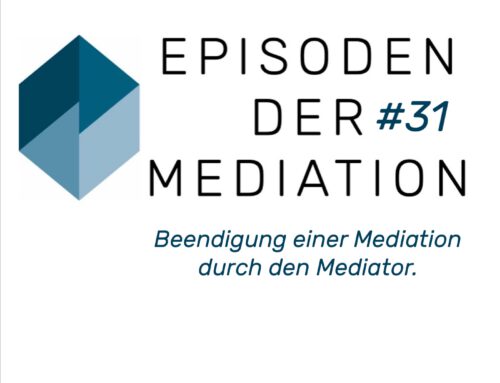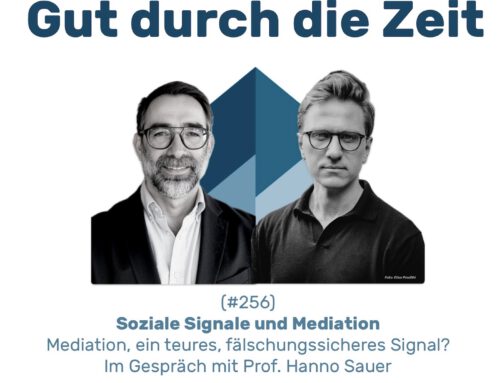Prof Dr Reinhard Greger (born 20 August 1946 in Erlangen) is a renowned German lawyer, former university lecturer and former judge at the Federal Court of Justice.
Greger began studying law at the University of Erlangen in 1966 and graduated in 1972 with the First State Examination in Law. The second state examination followed in 1975. In 1978, he completed his doctorate in Erlangen with a dissertation on "Evidence and Probability".
After working in the Bavarian civil service, Greger was appointed as a judge at the Federal Court of Justice (II Civil Senate) in 1993. He gave up this position in 1996 to accept an appointment at the Friedrich-Alexander University of Erlangen-Nuremberg, where he held the Chair of Civil Law, Civil Procedure Law and Voluntary Jurisdiction until 2007
Well through time.
The podcast about mediation, conflict coaching and organisational consulting.
Contents
Chapter:
0:08 – Introduction to mediation
2:02 – The path to conflict resolution
6:54 – The role of the judiciary
9:32 – The digital transformation of the justice system
11:21 – The challenges of alternative dispute resolution
14:44 – The need for a new approach
18:57 – The diversity of conflict resolution methods
22:22 – The importance of arbitration
26:34 – The integration of processes
32:31 – The primacy of the amicable solution
Summary of content
In this Consequence from „Good through the Time„ speak we about alternative Dispute resolution and the Role the Mediation. My Guest is Professor Reinhard Greger, former Judge on Federal Court of Justice, the itself also to his active Time for consensual Conflict resolution committed. Together illuminate we current The challenges and Developments, in particular in the Context with Reform proposals for a nationwide standardised Justice portal.
Professor Greger emphasised, that Mediation only one from many Possibilities to the Dispute resolution is. He demands one comprehensive Approach, the both classic Legal proceedings as also alternative Methods includes. In view of the reinforced Promotion more digital Initiatives pleaded he in favour, these in a standardised Justice portal to integrate. The would Citizens and The company the Access to suitable Conflict resolution facilitate.
We speak also about the Difficulties with the Realisation such Systems. Greger criticised, that the recent Reform proposals the Gap between judicial Processing and alternatives Procedure not sufficient bridge. He admonishes, the Justice must not only as last Instance serve, but also active about alternative Solutions inform and these promote. In the process criticised he, that Mediation approaches in political Debates often to short come, what the Access to the Justice impair could.
A Centre of gravity ours Conversation is the Necessity, Citizens more as only the Path to Legal proceedings to show. Greger provides the Project „Law without Dispute„ (www. legal dispute. en) before, a Internet portal, the as Conflict controller comprehensive about various Dispute resolution procedure informed. Despite more positive Resonance from the Professional world warns he, that without legal Support for such Approaches not the necessary Attention receive.
To the Conclusion discuss we the stare Structures the Case law, the often innovative Solutions block. Greger calls in addition on, the Debate about alternative Dispute resolution advance and these stronger in the Justice to integrate.





Leave A Comment